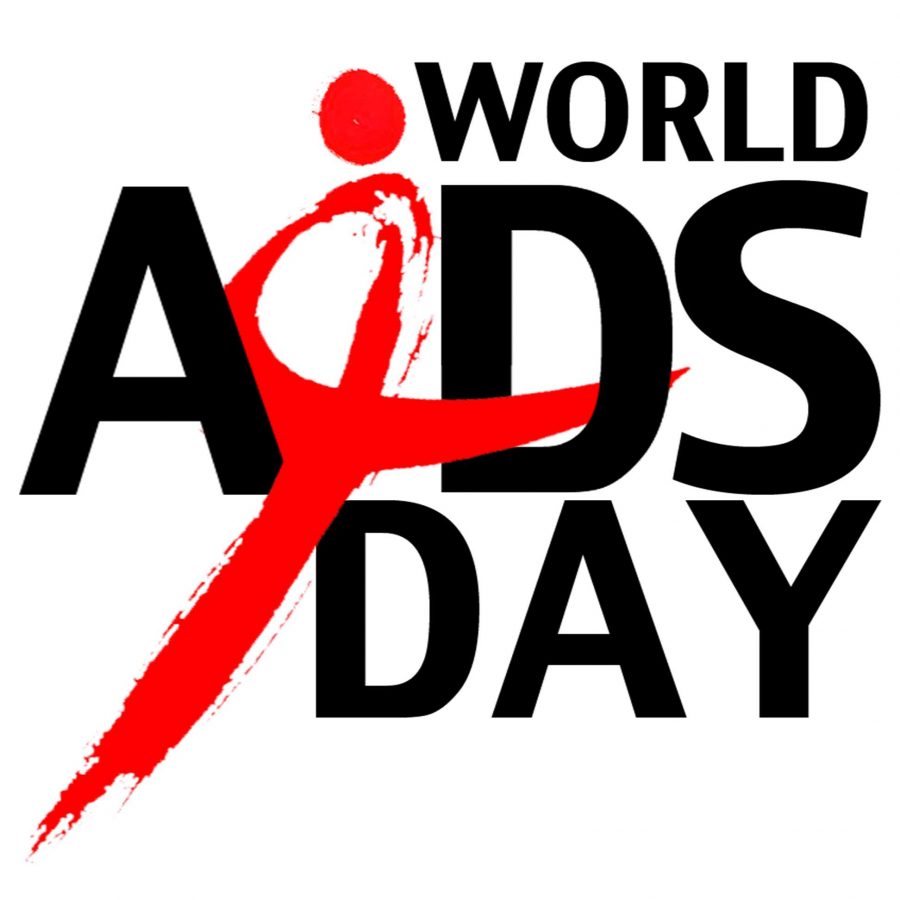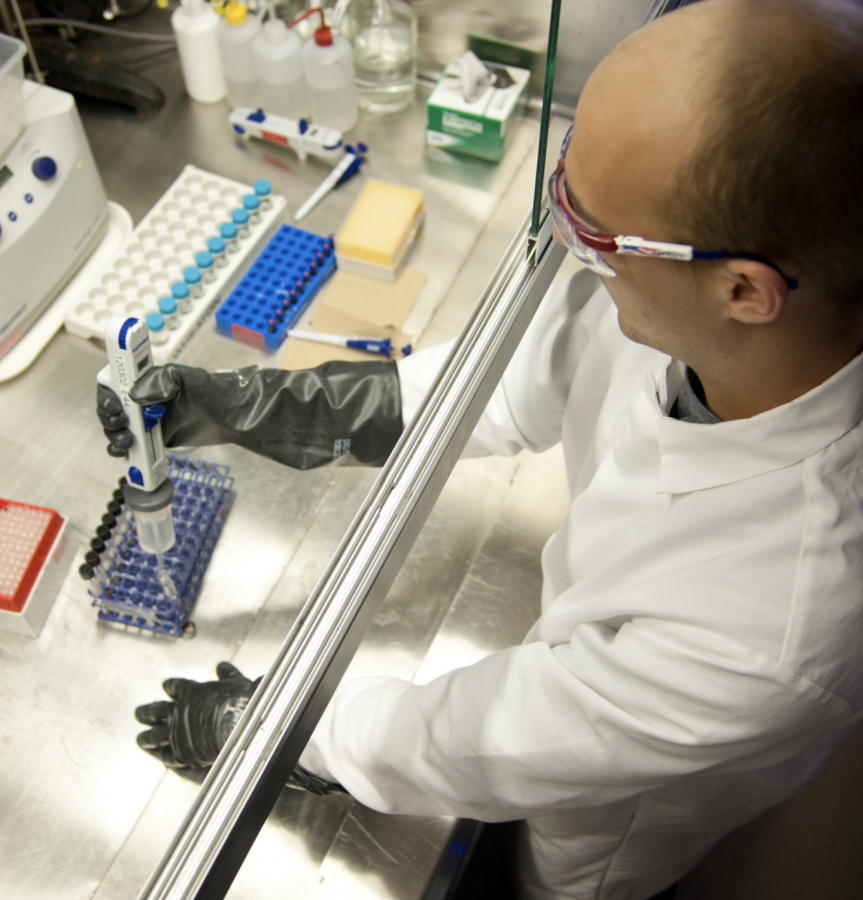HIV/AIDS is an epidemic that has been prevalent in our country since the 1980s. While technology and society have come a long way since then it is still a very prevalent epidemic, and one that many feel should be more commonly spoken about.
Thursday, December 1 was World AIDS Day, an opportunity to promote discussion and awareness. UNH Pride, in coordination with the Office of Residential Life, held free HIV testing in the German Club with AIDS Project New Haven. AIDS Project New Haven is a local organization that offers free testing continuously to the New Haven community.
“It is extremely important to include college campuses in the day because, while they may not be some of the high risk people, it is good to get in the routine of getting tested regularly. Statistics show that if people start being tested at an early age that pattern continues into their lives,” says Weslee Hyslop, Prevention Services Coordinator for AIDS Project New Haven. He continued saying, “It is important to let people know what resources are available to them.”
Pride president, Steven Solar agreed saying, “It’s important to know that on campus there are resources to help someone cope in the event that they were tested as HIV positive. It establishes a support system, letting them know that there are people there for them. There are multiple victims of HIV and it’s important to know that it’s not their fault.”
When it came to campus involvement, Soler felt it was important for Pride to take a large role. “Pride is based heavily on educating and promoting awareness, including negative stereotypes within the LGBT+ community. As a club, it’s important for us because it gives us the opportunity to keep educating and fighting stigma,” he says.
The campus event was very successful, with 17 people of mixed gender and orientation being tested. AIDS Project New Haven is looking forward to coming back more often.
When the epidemic began in the 1980s it was largely an epidemic within the gay male community, it then moved to drug users, and now has gone back to the gay community. Currently, 70% of infections are within the gay male community, particular among men of color.
While college students are not typically the target group for testing, it is not impossible to test positive as a college student.
Karina Danvers, a resident of West Haven CT, reflected on her situation saying, “I was infected at 19, I was heterosexual, I was not what people considered promiscuous, I really knew the people I was having sexual relations with, and they were nice people. I think we all just forget that nice people get STD’s too. There wasn’t anything evil or nasty about it.”
The way HIV/AIDS is currently viewed is very different now than in the past, however, there is still much work to be done. The differences are most prevalent in the medical field.
“I see hope because now when I’m hospitalized the medical people are not afraid to take care of me anymore,” says Danvers.
Hyslop attributes the societal change to the younger generations saying, “The main difference is people now are more aware of the medications, and even if they are not they know it is not a complete death sentence. The younger generations seem typically more aware. People are now looking at HIV positive people like it is not their fault.”
While society has come a long way, according to Danvers, “being alone, people being afraid of you and making assumptions, has not changed enough.”
The stigma is still out there. Hyslop says, “There is a lot people put on themselves. They don’t want to be associated with this virus. We need to keep fighting the stigma that has been preventing people from getting tested.”
Testing HIV positive is no longer a death sentence. Danvers feels it is important that people remember there is hope.
“When I was infected I felt like my life was over. Some of that stays with you, but now medications are great and my health is good,” she says.
She closes with final advice, “In 2016, STD’s should really just be in a conversation between two people.”


















